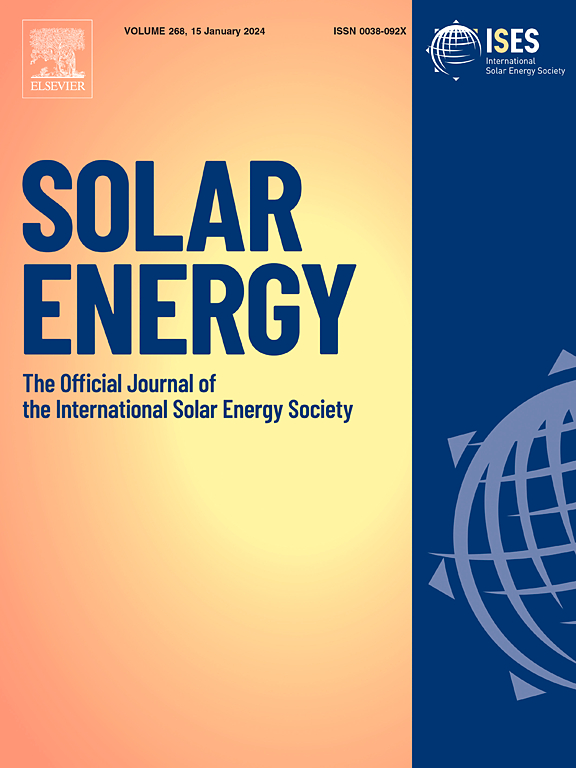Design and performance analysis of novel perovskite/CZTSe hybrid solar cell for high efficiency
IF 6
2区 工程技术
Q2 ENERGY & FUELS
引用次数: 0
Abstract
With newer developments, the solar cells in the market need to be more efficient, affordable, stable, and environment friendly. The perovskite solar cells have already shown very impressive progress in performance since their inception. It has already reached 26 % efficiency and is expected to reach more, owing to its stupendous photovoltaic nature. On the other hand, even with a very high absorption coefficient, the CZTSe solar cell has not crossed the 15 % efficiency mark. Looking at the characteristics of both the materials and considerable differences in band gap, a novel hybrid structure, HTL/Perovskite/CZTSe/CdS/ZnO, has been proposed in this work to implement Perovskite (CH3NH3Pb3−xClx) and CZTSe layer to absorb higher energy and lower energy photons respectively. In this context, choosing a proper Perovskite material becomes more crucial to have the required band alignment for the easy transportation of the excitons. The performance of the cell has been observed in varying parameters like thickness, doping, defects, and temperature. A high efficiency of 30.9 % is achieved which is much higher than the contemporary solar cells. Several other output parameters like Short Circuit Current Density (JSC), Open Circuit Voltage (VOC), Fill-Factor (FF%) characteristics have also been discussed.
新型高效钙钛矿/CZTSe混合太阳能电池的设计与性能分析
随着新的发展,市场上的太阳能电池需要更高效、更实惠、更稳定、更环保。钙钛矿太阳能电池自问世以来,在性能方面已经取得了令人印象深刻的进步。它已经达到了26%的效率,并且由于其惊人的光伏特性,预计将达到更高的效率。另一方面,即使具有很高的吸收系数,CZTSe太阳能电池也没有超过15%的效率标志。考虑到这两种材料的特性和带隙的巨大差异,本文提出了一种新的杂化结构HTL/钙钛矿/CZTSe/CdS/ZnO,以实现钙钛矿(CH3NH3Pb3−xClx)和CZTSe层分别吸收高能量和低能光子。在这种情况下,选择合适的钙钛矿材料对于具有所需的能带对准以方便激子的传输变得更加重要。电池的性能已经在不同的参数,如厚度,掺杂,缺陷和温度观察。效率高达30.9%,远高于目前的太阳能电池。其他几个输出参数,如短路电流密度(JSC),开路电压(VOC),填充因子(FF%)特性也进行了讨论。
本文章由计算机程序翻译,如有差异,请以英文原文为准。
求助全文
约1分钟内获得全文
求助全文
来源期刊

Solar Energy
工程技术-能源与燃料
CiteScore
13.90
自引率
9.00%
发文量
0
审稿时长
47 days
期刊介绍:
Solar Energy welcomes manuscripts presenting information not previously published in journals on any aspect of solar energy research, development, application, measurement or policy. The term "solar energy" in this context includes the indirect uses such as wind energy and biomass
 求助内容:
求助内容: 应助结果提醒方式:
应助结果提醒方式:


